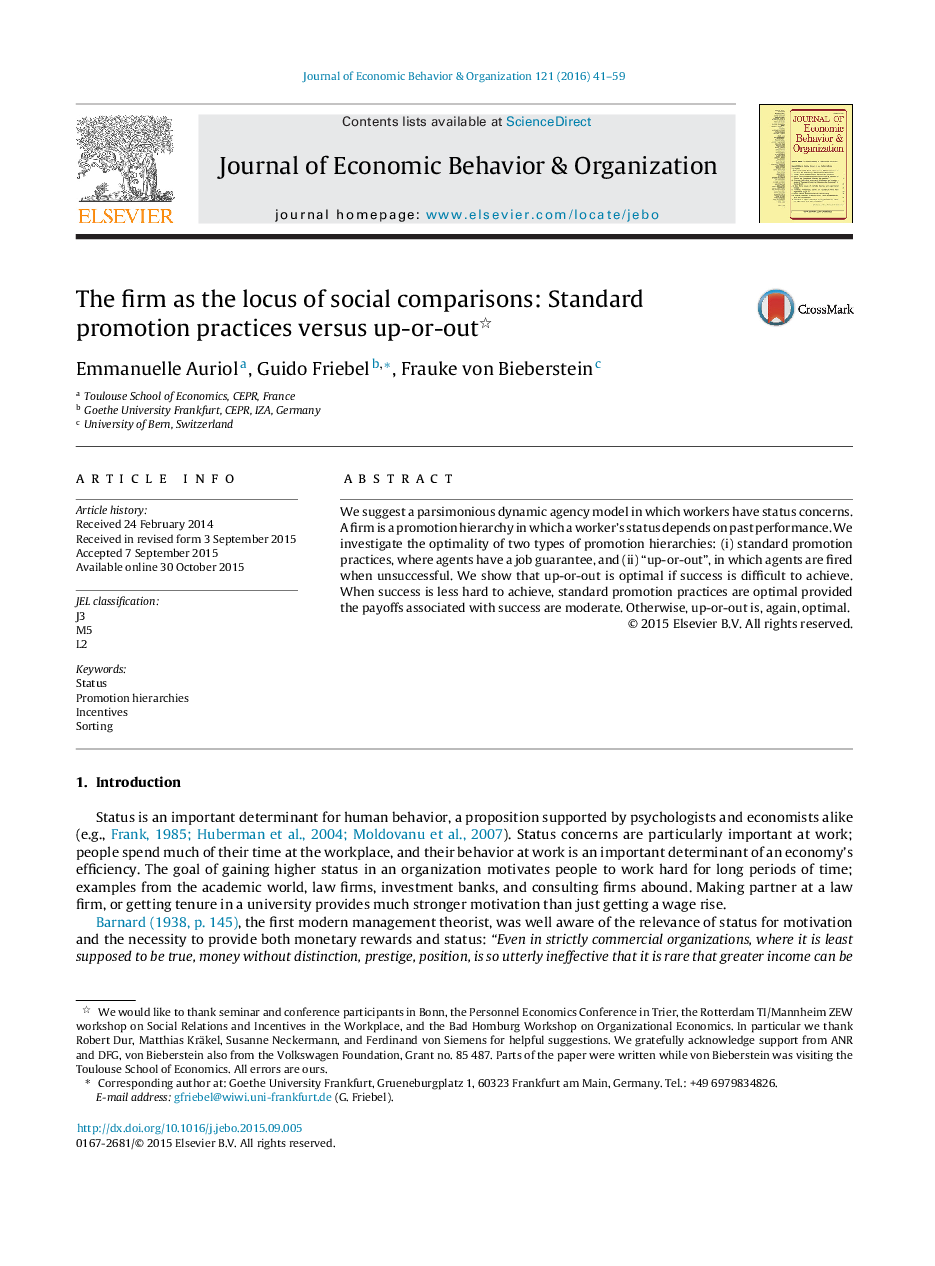| Article ID | Journal | Published Year | Pages | File Type |
|---|---|---|---|---|
| 883419 | Journal of Economic Behavior & Organization | 2016 | 19 Pages |
•Up-or-out hierarchies matter because of workers’ status concerns.•Up-or-out is optimal when the tasks are such that success is hard to achieve or effort is very costly.•This is in line with the presence of up or out in academe, consulting or law firms.
We suggest a parsimonious dynamic agency model in which workers have status concerns. A firm is a promotion hierarchy in which a worker's status depends on past performance. We investigate the optimality of two types of promotion hierarchies: (i) standard promotion practices, where agents have a job guarantee, and (ii) “up-or-out”, in which agents are fired when unsuccessful. We show that up-or-out is optimal if success is difficult to achieve. When success is less hard to achieve, standard promotion practices are optimal provided the payoffs associated with success are moderate. Otherwise, up-or-out is, again, optimal.
